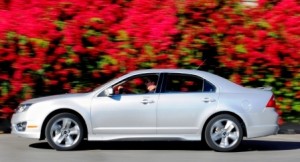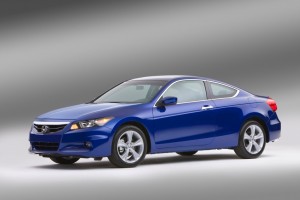While automakers are constantly looking to draw business away from their competitors, one of the toughest challenges is keeping buyers in the fold, and according to a new study by J.D. Power and Associates, Ford and Honda tie as the brands with the highest customer retention rates.
Domestic automakers are making inroads when it comes to getting existing owners back at trade-in time, but on the whole, the imports still do a better job, the market research firm reports.
But what keeps buyers happy and loyal is shifting, according to the annual Customer Retention Study. Buyers are placing more and more emphasis on fun-to-drive, rather than practical, factors in making their choice for a new car.
“Now that economic and market conditions have improved somewhat, vehicle owners are increasingly citing emotional, rather than practical, reasons for staying with their vehicle brand or switching to a different one,” said Raffi Festekjian, director of automotive product research at J.D. Power and Associates.
Customer retention is a critical factor, up there with issues like quality and reliability. Various studies have, over the year, shown that it can cost anywhere from seven to 11 times more – in marketing dollars – to win over a new customer as opposed to holding onto an existing buyer. And high customer retention rates routinely translate into stronger residual – or resale – values.
Honda has traditional scored high in terms of customer retention, and this year grabs the lead, with a 62% retention rate. But Ford ties the Japanese maker for the top spot, also scoring a 62%, according to Power, a notable victory for a domestic brand.
Honda’s strong performance is driven by three models, the flagship Accord, and two crossovers: the Pilot and the CR-V. Ford, meanwhile, hits a home run with the Edge crossover, the Fusion sedan, and the F-Series pickup.
Another strong new contender is Hyundai, the Korean marque, which scores an unexpected tie with Toyota and its luxury division, Lexus, all three with 60% customer retention rates. While the emergence of Hyundai might sting, Toyota still has the satisfaction of remaining in the top tier despite the widely-covered safety problems it has faced over the last year.
On the whole, the industry’s customer retention rate has held, year-over-year, at 48%, with 16 of the 34 brands covered by the 2010 study improving, 14 declining and four maintaining the same scores as in 2009.
Domestic makers still tend to lag their foreign rivals, and particularly struggle when it comes to “conquesting,” or winning over buyers who leave a foreign maker. But they are showing improvements, according to the new study.
“While import brands still have notably higher customer conquest rates than domestic brands, the gap is beginning to narrow,” said Festekjian. “In recent years, domestic brands have achieved parity or even surpassed the performance of import brands in initial quality and new-vehicle appeal, and customer perceptions of these nameplates seem to be evolving accordingly. It will be interesting to see how the performance gains by domestic brands affect retention and conquest rates in the coming years.”
Power based the 2010 Customer Retention Study on responses from more than 120,000 new vehicle buyers and lessees.


